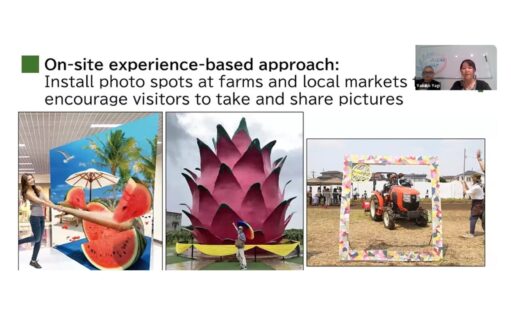Updates
See AllAJFVC team Visits Cambodia to Promote CamGAP
From October 6 to 8, 2025, the AJFVC GAP team visited Cambodia to advance pilot activities promoting the Cambodia National Good Agricultural Practices (CamGAP). The team engaged in on-site observations and interviews at a certified GAP farm and with a wholesaler recognized for distributing “Safe Vegetables,” including products certified under CamGAP. During the visit, the […]
READ MORETrain-the-Trainer Workshop on Fishery Products Hygiene Management and Cold Chain Management
On October 9, 2025, the ASEAN-JICA Food Value Chain Development Project (AJFVC) successfully concluded a train-the-trainer workshop on fishery products hygiene management and cold chain management at Nanyang Polytechnic in Singapore. This four-day training was part of the AJFVC Output 3, specifically focusing on improving good aquaculture practices among ASEAN Member States (AMSs), and was […]
READ MORESupplementary GAP Training in Thailand for Representatives from Laos
From 30 September to 1 October 2025, three representatives from Lao PDR participated in a specialized training program in Chiang Mai, Thailand. This initiative was part of a supplementary experience-sharing workshop to accelerate the alignment of Lao PDR’s National Good Agricultural Practices (GAP) with the ASEAN GAP as well as to enhance Lao PDR’s capacity […]
READ MOREExperience Sharing Workshop on ASEAN GAP
From 1 to 4 October 2025, the ASEAN Good Agricultural Practices (GAP) Experience Sharing Workshop was successfully held in Chiang Mai, Thailand, bringing together key stakeholders in the agricultural sector to exchange insights and strategies for promoting sustainable farming practices. Organized by the AJFVC in collaboration with key partners from Thailand, the event highlighted the […]
READ MOREAJFVC Virtual Inception Meeting on Fishery Products Hygiene Management
On september 17, 2025, the AJFVC, as part of Output 3 Good Aquaculture Practices activities, held a Virtual Inception Meeting focused on improving hygiene management in fishery products. This virtual event brought together representatives from ASEAN Member States (AMSs) to share insights and create a collaborative framework aimed at enhancing hygiene standards across the region. […]
READ MOREAJFVC Successfully Completes Final Session of Pesticide Residue Analysis Training in Vietnam
In August 2025, a pesticide residue analysis training was held in Hanoi, Vietnam, with a total of 22 participants. The training was organized by the Reference Testing and Agrifood Quality Services Center (RETAQ), under the National Authority for Agro-Forestry-Fisheries Quality, Processing, and Market Development (NAFIQPM), Ministry of Agriculture and Environment. RETAQ was chosen as the […]
READ MORE
AJFVC Hosts Three-Part Webinar Series on Promoting Good Agricultural Practices through Social Media
In August 2025, the AJFVC Team successfully organized a three-part webinar series aimed at enhancing the promotion of Good Agricultural Practices (GAP) through various social media platforms. The sessions, held on August 12, 19, and 21, were specifically designed to assist ASEAN Member States (AMSs) in advancing their national GAP initiatives by exploring effective strategies […]
READ MORE2nd Joint Coordination Committee Meeting for ASEAN-JICA Food Value Chain Development Project
On 13 August 2025, the Japan International Cooperation Agency (JICA) and the ASEAN Secretariat held the second Joint Coordination Committee (JCC) Meeting for the ASEAN-JICA Food Value Chain Development Project (AJFVC). The hybrid meeting, which combined in-person and virtual participation, brought together representatives from various ASEAN member states and Timor-Leste, highlighting the ongoing collaborative efforts […]
READ MORE